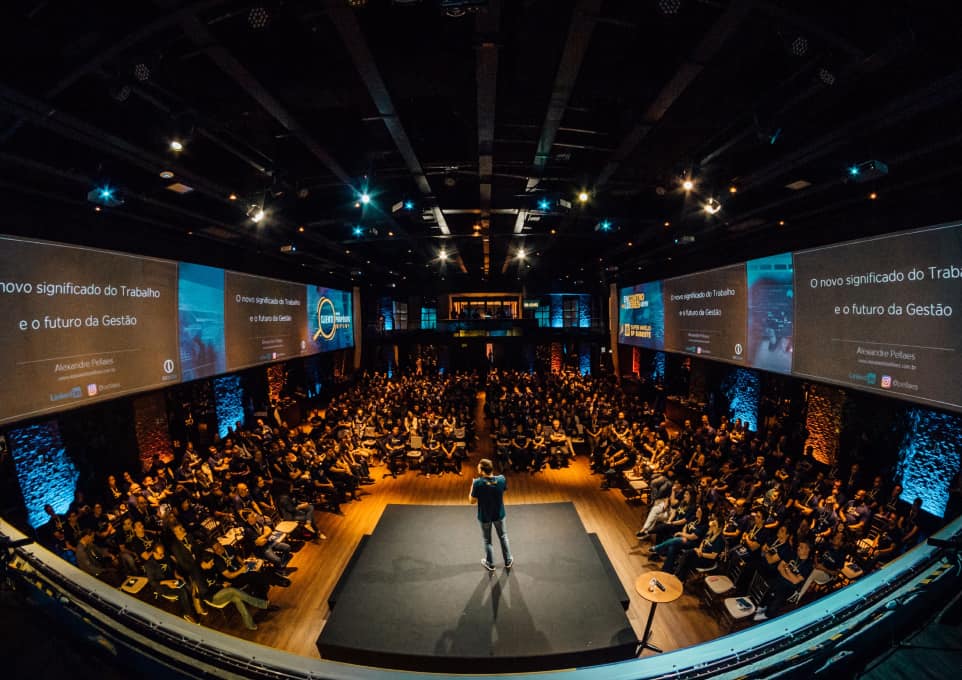We’ve all seen the motivational poster that says “teamwork makes the dream work.” It may seem corny when it’s cheaply framed and hanging in a conference room, but don’t let the presentation take away from the sentiment. Someone hung that poster on the wall to promote and improve teamwork in the office — and while a poster on a wall may not be effective, it could serve as a reminder of other team building strategies that are.
If you were involved with a team sport as a kid, you likely learned that teamwork is almost always key to success: while individual players might make you stronger, without a team effort, it’s hard to win.
This is a bit like working in a group setting as an adult — an incredibly talented designer, writer, or coder can really push you forward, but if everyone isn’t on the same page, it’s going to be hard to release a solid, stable product. If you’re a manager — or if you’re part of a team that isn’t clicking — then you might be looking for ways to make your team operate like… well, a team. Here are our seven favorite tips and tools for encouraging group cohesion.

First Things First: Strive for Clarity and Set Goals
Every company is based around a mission and a vision. Some of the most successful companies base every single decision on these two statements, letting them serve as cornerstones for the entire operation. Does this action help us achieve our mission? If so, follow through. If not, the action should be abandoned.
Effective team members understand exactly how their jobs fit into the mission and vision of their organization because the leaders of such teams have made sure of it. This is why Ajit Nawalkha, CEO, host and co-founder of Evercoach, stresses clarity and goal-setting in his coaching seminars.
Nawalkha told us that “teams seek clarity more than anything. As entrepreneurs we are used to deciding things based on gut, but our team is opposite.” Nawalkha is onto something here — we can’t expect our employees to read our minds or even accept our instincts. We may have every step mapped out in our heads, but if we don’t communicate the plan to our teams and make sure they know their roles, we’re setting ourselves up for failure.
Expanding on communication, Nawalkha recommends very specific goal-setting to improve teamwork. Each team should have goals (and beyond that, individual goals) that align perfectly with organizational goals. Taking it one step further, each goal should be broken down into measurable, achievable steps that allow progress to be seen along the way. Once goals are set, teams have a path to success — and when they reach their goals, the team will strengthen further.
Teamwork Workshops
Many managers want to promote and improve teamwork in their organization, but don’t know where to start. They just know that doing trust falls in the woods is not going to boost their team’s morale — in fact, it may detract from the goal. Workshops don’t have to mean asking employees to spend three days in a cabin without cell phone reception hours away from their families. Workshops can be in-house during regular work hours.
Michael Annese is a Fire Battalion Chief turned author and team coach. Through his work as a firefighter, he saw first hand the importance of teamwork and wanted to share what he learned with the world. He started out by writing a book and then turned it into a series of workshops to help teams learn how to leverage their strengths and prepare for their weaknesses by discussing them openly with one another — not for ridicule or scrutiny, but for the purpose of assigning tasks.
If you have a well-liked, charismatic salesperson on your team, you wouldn’t put them in a closet and tell them to never speak to customers, would you? Of course not! You want that person out front selling your product. Improving teamwork in your business means getting to know your team members as people and then placing them in roles that align with their strengths.

Trello
Trello is generally touted as a great project management tool (and for good reason), but it can be incredibly effective for improving teamwork as well. For a team to function properly, teammates need to understand where they fit into the organization, how their jobs affect others, and how they can best serve the company mission. Trello can help teams do all of these things while keeping them on task.
Bryan Clayton, CEO of GreenPal, uses the “problem/solution canvas” in Trello to identify the three biggest problems of the week. This provides the team with a space where they can maintain a visible workflow of tasks in progress, which person is performing what duties, and what still needs to be accomplished to solve the problem. Clayton believes that this enables them to “make small changes that compound off of one another, inching [their] way towards the end zone.”
OneNote
Brad Stultz, Human Resources Coordinator at Totally Promotional, prefers Microsoft OneNote to keep his team on the same page. Stultz believes that OneNote allows documentation to stay “consistent and readily available to all management staff.” You can even use a stylus with a touchscreen device to draw arrows, cross things out, or leave handwritten notes, making it a snap for teams to exchange feedback.
Teamwork is all about working together to reach a common goal, which means that everyone needs to be up to date on every project’s progress — otherwise, projects are not completed and the product never makes it out the door. Tools like Trello and OneNote can provide a framework for the accountability and goal-setting necessary to improve teamwork and therefore, reach your organizational goals faster and more effectively.
The Olympics in the Workplace
Every two years, the world gathers for the better part of a month to watch athletes compete in the Olympics, which is perhaps the most quintessential example of teamwork. Even Olympians competing in individual events are a part of their country’s team. They train, prepare, and compete side by side, encouraging one another and picking each other up when they fall — sometimes they even help people on opposing teams as well.

There is no better benchmark than the Olympics if you want to improve teamwork in your company, which is why Pierre Tremblay, Director of Human Resources at Dupray holds his own Office Olympics during the Games. Team members are able to accrue points (to earn medals) throughout Dupray’s Olympics for simple tasks, such as greeting everyone in the morning or baking cookies for the whole office.
Tremblay told us we “would be surprised how this increases morale in the company — and how it improves teamwork.” We can certainly see how this could work. It’s easy to fall into the routine of sprinting from your car to your desk without so much as eye contact in the morning, but behaviors like that are isolating and do not promote teamwork. Encouraging each other to interact on a fundamental human level goes a long way toward improving teamwork in your organization.
Slack
In the Internet age, businesses are functioning differently than they used to. Some don’t have a brick and mortar office. Others have offices, but employ remote workers that live in other cities. Many businesses function perfectly well like this, but sometimes, this setup makes it hard to feel like you are part of a team.
Slack is a great way to promote teamwork in modern businesses. David Walker, CEO and co-founder of Triplemint, believes that “great communication is one of the most important parts of creating a teamwork driven culture.” Walker’s team at Triplemint uses Slack to “promote quick and open communication and keep the team in tune with everything happening at the company.”
A platform like Slack not only keeps internal email to a minimum, but it can promote and improve teamwork by letting employees feel like they can reach out to anyone in the company. It is less formal than email and less intrusive than walking into someone’s office. This is especially helpful for remote workers, who are unable to ask questions of a neighboring teammate.
Take Advantage of Technology — But Eliminate the Unnecessary Meetings
When people think of improving teamwork, they usually think of getting people together in a room — and understandably so. We can’t learn how to work more effectively together if we aren’t working together. But sometimes, promoting teamwork means leaving them alone so the team can actually work.
Nothing kills team morale faster than sitting through meetings that didn’t need to happen. There aren’t many faster ways to build resentment within a team than a regular practice of unnecessary meetings.
That’s why Chris Battles, Vice President and General Manager of Citrix, recommends taking a few minutes to really decide if the meeting is necessary. Can this problem be solved over the phone with one or two people? If so, skip the meeting and save everyone the hassle. Your team can spend the time being productive and they’ll appreciate you more for it.
Of course, some meetings are necessary and truly can improve teamwork, but we aren’t always in the same location (or even the same time zone) as the rest of our group. In these moments, services like GoToMeeting keep your team members connected without the added travel expense.

When In Doubt — Head to the Library
There have been hundreds upon thousands of books written about teamwork — one of the most popular being The 5 Dysfunctions of a Team. Successful teams, controversial teams, and teams that were miserable failures are well documented in your local library. In fact, entire college courses have been designed to teach future managers of America how to lead functional, successful teams.
Why? Because no one person can change the world. It takes a team. And sometimes, it takes many teams over the course of many years. After all, Rome wasn’t built in a day (and certainly not by one person). Improving teamwork in your organization will also take more than one day, but the time, effort, and investment you put into your people will be well worth it.
Proto.io lets anyone build mobile app prototypes that feel real. No coding or design skills required. Bring your ideas to life quickly! Sign up for a free 15-day trial of Proto.io today and get started on your next mobile app design.
How do you promote and improve teamwork in your small business? Let us know by tweeting us @Protoio!





